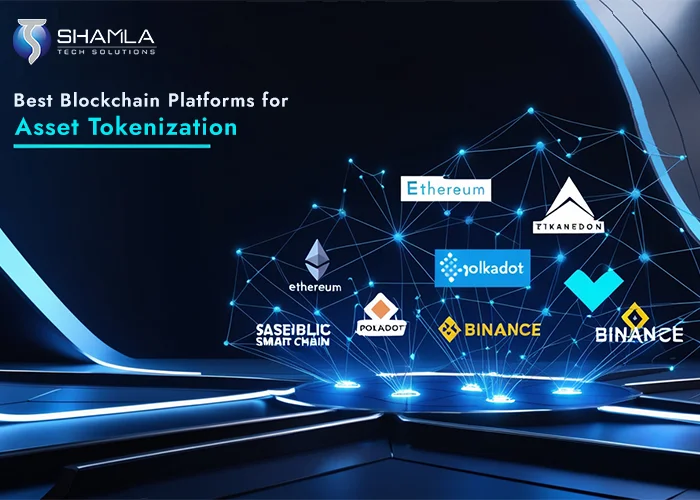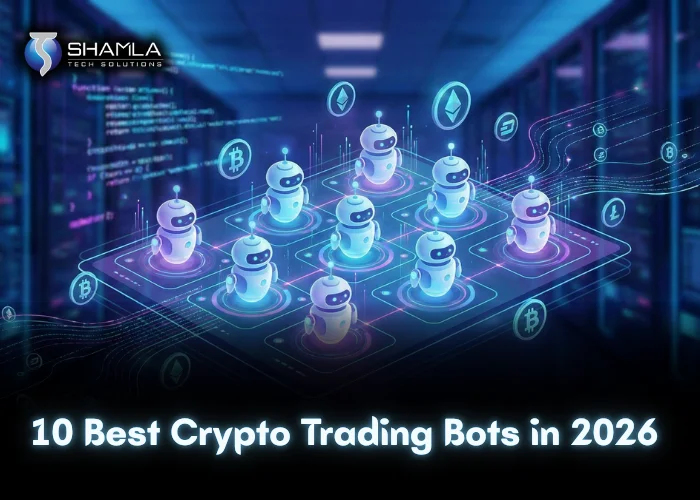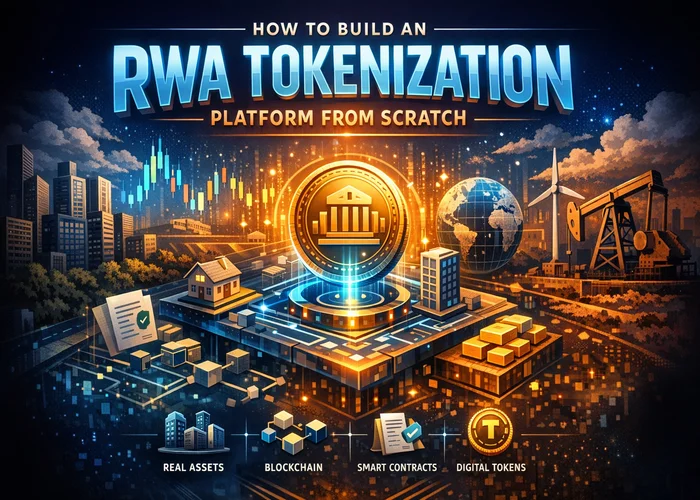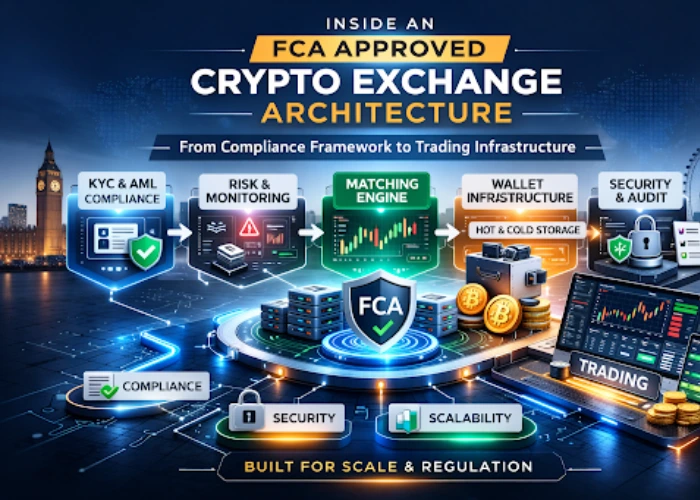Blockchain technology, which emerged with Bitcoin, is now ubiquitous and significant in many fields. Supply chain, healthcare, logistics, and finance widely use blockchain to improve transparency and streamline company processes. Blockchain’s popularity stems from immutability, security, and decentralization.
If you’re fascinated by blockchain asset tokenization platform disruptive potential and want to use it for success, choose the correct blockchain development platform. With so many platforms, this decision is getting harder.
You’re not alone in this dilemma. This blog will lead you through 2024’s top 10 blockchain platforms for secure and effective blockchain application development. Let’s first grasp blockchain technologies before discussing platforms. Are you ready for blockchain development? Let’s begin!
What Exactly is a Blockchain Asset Tokenization Platform?
A Blockchain Asset Tokenization Platform is a revolutionary solution that enables the conversion of real-world assets into digital tokens on a blockchain. This process, known as Real World Assets Tokenization, allows assets such as real estate, commodities, art, or even intellectual property to be represented as tokens. These tokens are tradable, providing fractional ownership, liquidity, and transparency.
Tokenization brings numerous benefits to traditional asset management. By digitizing physical or intangible assets, businesses and investors gain access to global markets, increasing liquidity and democratizing investments. For example, an expensive property can be divided into smaller tokenized units, allowing multiple investors to own shares of the property without the need for significant capital.
Assets Tokenization also enhances security and efficiency in transactions. Blockchain technology ensures that tokenized assets are immutable and transparent, reducing fraud and improving trust among participants. Furthermore, the decentralized nature of blockchain minimizes the need for intermediaries, lowering transaction costs and increasing the speed of asset transfers.
These platforms are particularly valuable for businesses seeking innovative ways to raise capital or streamline their operations. With a Blockchain Asset Tokenization Platform, enterprises can unlock the value of their assets and offer them to a broader audience, transforming how assets are bought, sold, and managed.
In summary, blockchain asset tokenization platforms are transforming the financial landscape by making asset ownership more accessible, liquid, and secure, driving the future of digital investment.
Benefits of Using Blockchain for Asset Tokenization
1. Enhanced Liquidity
Blockchain asset tokenization platforms enable Real World Assets Tokenization, making traditionally illiquid assets such as real estate and art more liquid. By converting these assets into digital tokens, investors can trade them on secondary markets, ensuring quicker and easier access to capital.
2. Fractional Ownership
One of the biggest advantages of Assets Tokenization is fractional ownership. High-value assets, such as luxury properties or rare collectibles, can be divided into smaller tokenized units, allowing multiple investors to own portions of the asset. This democratizes investment opportunities by lowering the barrier to entry.
3. Increased Accessibility
With tokenization, asset ownership is no longer limited by geography or financial status. Blockchain platforms provide global access to tokenized assets, enabling investors from around the world to participate in asset markets.
4. Transparency and Security
Blockchain’s immutable ledger ensures that all transactions are recorded transparently and securely. Tokenized assets benefit from enhanced security features, including encryption and traceability, reducing the risk of fraud and increasing trust among investors.
5. Cost Efficiency
By eliminating intermediaries such as brokers and clearinghouses, Blockchain asset tokenization platforms reduce transaction costs significantly. This streamlined process leads to more cost-effective asset management and trading.
6. Faster Transactions
Blockchain technology facilitates near-instant settlement of transactions. This is particularly beneficial for high-value asset transfers, where traditional processes can be time-consuming and cumbersome.
7. Programmable Ownership and Automation
Smart contracts automate various aspects of Real World Assets Tokenization, such as dividend distribution, governance, and compliance. This reduces manual intervention and ensures seamless operation.
8. Diversification Opportunities
Investors can diversify their portfolios by accessing a wide range of tokenized assets, from commodities to intellectual property, mitigating risks and maximizing returns.
These benefits make blockchain platforms a game-changer in the world of asset tokenization.
Criteria for Choosing a Blockchain Platform for Tokenization
1. Security Features
A reliable Blockchain Asset Tokenization Platform must prioritize security. Look for platforms with robust encryption, multi-signature wallets, and secure smart contract execution to protect tokenized assets and transactions. Security is crucial for ensuring trust in Real World Assets Tokenization processes.
2. Scalability and Performance
The platform should handle high transaction volumes without compromising speed or efficiency. Scalability is vital for large-scale Assets Tokenization projects, ensuring seamless operations even as demand increases.
3. Compliance and Regulatory Support
Choose a platform that adheres to local and international regulations. The platform should offer built-in KYC (Know Your Customer) and AML (Anti-Money Laundering) features, enabling compliant Real World Assets Tokenization.
4. Interoperability
A platform with strong interoperability allows tokenized assets to be transferred across different blockchain networks. This enhances flexibility and widens market opportunities for token holders.
5. Cost Efficiency
Evaluate transaction fees and operational costs. A cost-effective Blockchain Asset Tokenization Platform ensures that tokenization and subsequent transactions do not erode the financial benefits of digitizing assets.
6. Smart Contract Capabilities
The platform should support customizable smart contracts, which automate essential processes like ownership transfer, dividend distribution, and governance, streamlining Assets Tokenization.
7. User Experience and Accessibility
An intuitive interface and user-friendly tools are crucial for both issuers and investors. A platform that simplifies the tokenization process ensures wider adoption and ease of use.
8. Ecosystem and Market Reach
Consider the platform’s existing ecosystem, including partnerships, marketplace integration, and active user base. A well-connected Blockchain Asset Tokenization Platform enhances visibility and liquidity for tokenized assets.
9. Transparency and Auditability
Blockchain technology inherently provides transparency. Ensure the platform offers detailed transaction histories and audit capabilities, critical for maintaining trust in tokenized asset transactions.
10. Flexibility in Asset Types
The platform should support a wide range of assets, from real estate to intellectual property, enabling diverse Assets Tokenization opportunities.
Top Blockchain Platforms for Asset Tokenization
1. Ethereum
Ethereum is one of the most popular Blockchain Asset Tokenization Platforms, known for its robust smart contract capabilities. It supports a wide range of tokens, making it ideal for Real World Assets Tokenization like real estate and art. Ethereum’s active developer community and established ecosystem enhance its reliability for Assets Tokenization projects.
2. Binance Smart Chain (BSC)
BSC offers high performance and low transaction fees, making it a cost-effective option for Blockchain Asset Tokenization Platforms. Its compatibility with Ethereum-based tools allows for seamless integration and efficient Assets Tokenization processes.
3. Hyperledger Fabric
Hyperledger Fabric is a permissioned blockchain platform tailored for enterprises. It provides privacy, scalability, and customizability, making it suitable for Real World Assets Tokenization in highly regulated industries such as finance and supply chain management.
4. Polkadot
Polkadot stands out for its interoperability, enabling different blockchain networks to work together. This makes it an excellent choice for Assets Tokenization, as tokenized assets can easily move across various blockchains, enhancing liquidity and market reach.
5. Tezos
Tezos is known for its energy efficiency and on-chain governance. It supports smart contracts and provides a secure environment for Blockchain Asset Tokenization Platforms, especially for industries looking to tokenize assets sustainably.
6. Stellar
Stellar is designed for fast and low-cost transactions, making it ideal for Real World Assets Tokenization. It excels in cross-border payments and tokenizing assets such as stablecoins and commodities.
7. Solana
With its high throughput and low transaction costs, Solana is an emerging favorite for Assets Tokenization. It can handle complex tokenized asset ecosystems, ensuring fast and efficient transactions.
Choosing the right platform depends on your specific needs, including scalability, security, and regulatory compliance.
Comparison Table of Blockchain Platforms
| Platform | Key Features | Use Cases | Strengths | Weakness |
|---|---|---|---|---|
| Ethereum | Smart contracts, large ecosystem | Real World Assets Tokenization: Real estate, art | Established, widely adopted | High gas fees, scalability issues |
| Binance Smart Chain (BSC) | Low fees, fast transactions | Tokenized assets, DeFi | Cost-effective, Ethereum-compatible | Centralization concerns |
| Hyperledger Fabric | Permissioned, modular | Enterprise Assets Tokenization: Supply chain, finance | Privacy, regulatory compliance | Limited public accessibility |
| Polkadot | Interoperability, scalability | Cross-chain Assets Tokenization | Multi-chain, liquidity enhancement | Complexity in implementation |
| Tezos | On-chain governance, energy-efficient | Sustainable Real World Assets Tokenization | Upgradable, secure | Smaller ecosystem |
| Stellar | Fast, low-cost transactions | Cross-border payments, tokenized commodities | High speed, low costs | Limited smart contract functionality |
| Solana | High throughput, low fees | High-volume Assets Tokenization | Fast, efficient | Relatively newer, fewer developers |
ShamlaTech’s Expertise in Asset Tokenization Solutions.
ShamlaTech is a leading provider of Blockchain Asset Tokenization Platforms, offering innovative solutions to help businesses unlock the value of their assets. With a deep understanding of blockchain technology and market dynamics, ShamlaTech enables efficient Real World Assets Tokenization, transforming tangible and intangible assets like real estate, art, and intellectual property into digital tokens.
Our expertise spans a wide range of Assets Tokenization services, including the development of secure, scalable platforms tailored to your specific needs. We leverage cutting-edge blockchain technologies to ensure transparency, security, and immutability in every transaction. From fractional ownership to enhanced liquidity, ShamlaTech’s tokenization solutions make it easier for businesses and investors to participate in global asset markets.
At ShamlaTech, we focus on delivering end-to-end solutions, from initial consultation and platform development to deployment and ongoing support. Our platforms incorporate advanced smart contracts, enabling automated processes such as dividend distribution, compliance, and governance. This ensures seamless and efficient management of tokenized assets.
With extensive experience in handling regulatory requirements across different regions, ShamlaTech provides compliant tokenization platforms that meet global standards. Whether you’re an enterprise seeking to tokenize high-value assets or an individual looking for innovative investment opportunities, ShamlaTech’s asset tokenization solutions offer the perfect blend of security, efficiency, and market reach.
Partner with ShamlaTech to transform your asset management and unlock new possibilities in the digital economy.
Conclusion:
In today’s rapidly evolving financial landscape, Blockchain Asset Tokenization Platforms have emerged as a game-changer, offering innovative ways to manage and trade assets. By leveraging blockchain technology, businesses and investors can unlock the true potential of their assets through Real World Assets Tokenization, ensuring enhanced liquidity, transparency, and security.
Selecting the right platform for Assets Tokenization is crucial to the success of your tokenization project. Each blockchain platform offers unique strengths, whether it’s Ethereum’s robust smart contracts, Binance Smart Chain’s cost-efficiency, or Hyperledger Fabric’s enterprise-grade privacy and compliance. Platforms like Polkadot, Tezos, Stellar, and Solana also bring their own advantages, from interoperability to scalability and low transaction costs, catering to diverse business needs.
As the demand for tokenized assets grows, businesses must carefully evaluate their requirements, including scalability, security, and regulatory compliance, to choose a platform that aligns with their goals. Whether you aim to tokenize real estate, commodities, or intellectual property, the right platform will provide a secure, efficient, and scalable solution.
With a well-chosen blockchain platform, you can seamlessly digitize and manage assets, tapping into global markets and democratizing investments. Embracing Blockchain Asset Tokenization Platforms ensures your business stays ahead in the competitive digital economy, unlocking new opportunities for growth and innovation.
By staying informed about these platforms, you can make confident decisions and fully capitalize on the benefits of asset tokenization in the blockchain era.
FAQs
1. What is a Blockchain Asset Tokenization Platform?
A Blockchain Asset Tokenization Platform is a system that converts real-world assets, such as real estate, art, or commodities, into digital tokens stored on a blockchain. These tokens represent ownership or shares of the asset, enabling easier trading, enhanced liquidity, and greater transparency in asset management.
2. What are the benefits of Real World Assets Tokenization?
Real World Asset Tokenization offers numerous benefits, including increased liquidity by enabling fractional ownership, enhanced security through blockchain’s immutable ledger, and greater accessibility as tokenized assets can be traded globally. It also reduces transaction costs by eliminating intermediaries and ensures compliance with regulatory standards.
3. How does Asset Tokenization improve liquidity?
Assets Tokenization improves liquidity by breaking down high-value assets into smaller, tradable units or tokens. These tokens can be easily bought and sold on secondary markets, providing asset owners and investors with faster access to capital and more trading opportunities.
4. What types of assets can be tokenized?
A wide range of assets can be tokenized, including physical assets like real estate, art, and precious metals, as well as intangible assets such as intellectual property, patents, and even carbon credits. Blockchain Asset Tokenization Platforms offer the flexibility to digitize nearly any asset type.
5. How do Blockchain Asset Tokenization Platforms ensure security?
These platforms use advanced blockchain technology to secure transactions and asset records. Features like encryption, smart contracts, and decentralized ledgers ensure data integrity, prevent fraud, and provide a transparent and tamper-proof system for managing tokenized assets.








